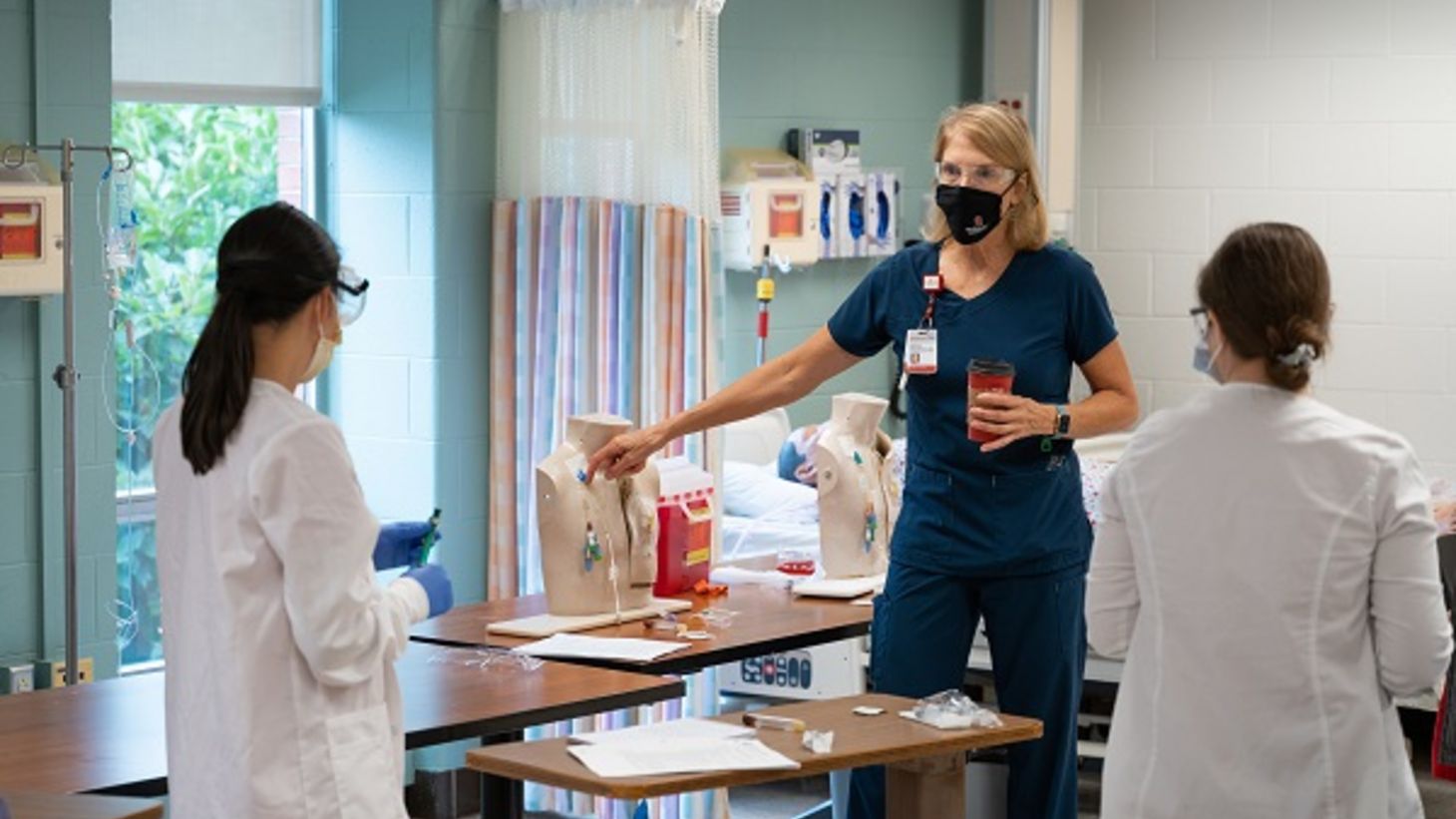
The Change Agents
by Ella Gomez
Our groundbreaking new Doctor of Nursing Education (DNE) degree is the first in the nation.
Doctor of Nursing Education (DNE) program directors Tara O’Brien, PhD, RN, CNE, and Tara King, PhD, RN, aren’t shy about their enthusiasm for the new degree. “It’s very innovative, creative and it’s going to change the landscape of nursing education,” O’Brien commented. Until recently, she explained, nurses wanting to teach at the college level could not get a doctorate specializing in nursing education.
“This program was born out of an expressed need throughout the nation to prepare nurse educators at the highest level, those whose passions are aligned with teaching and learning in nursing,” King said.
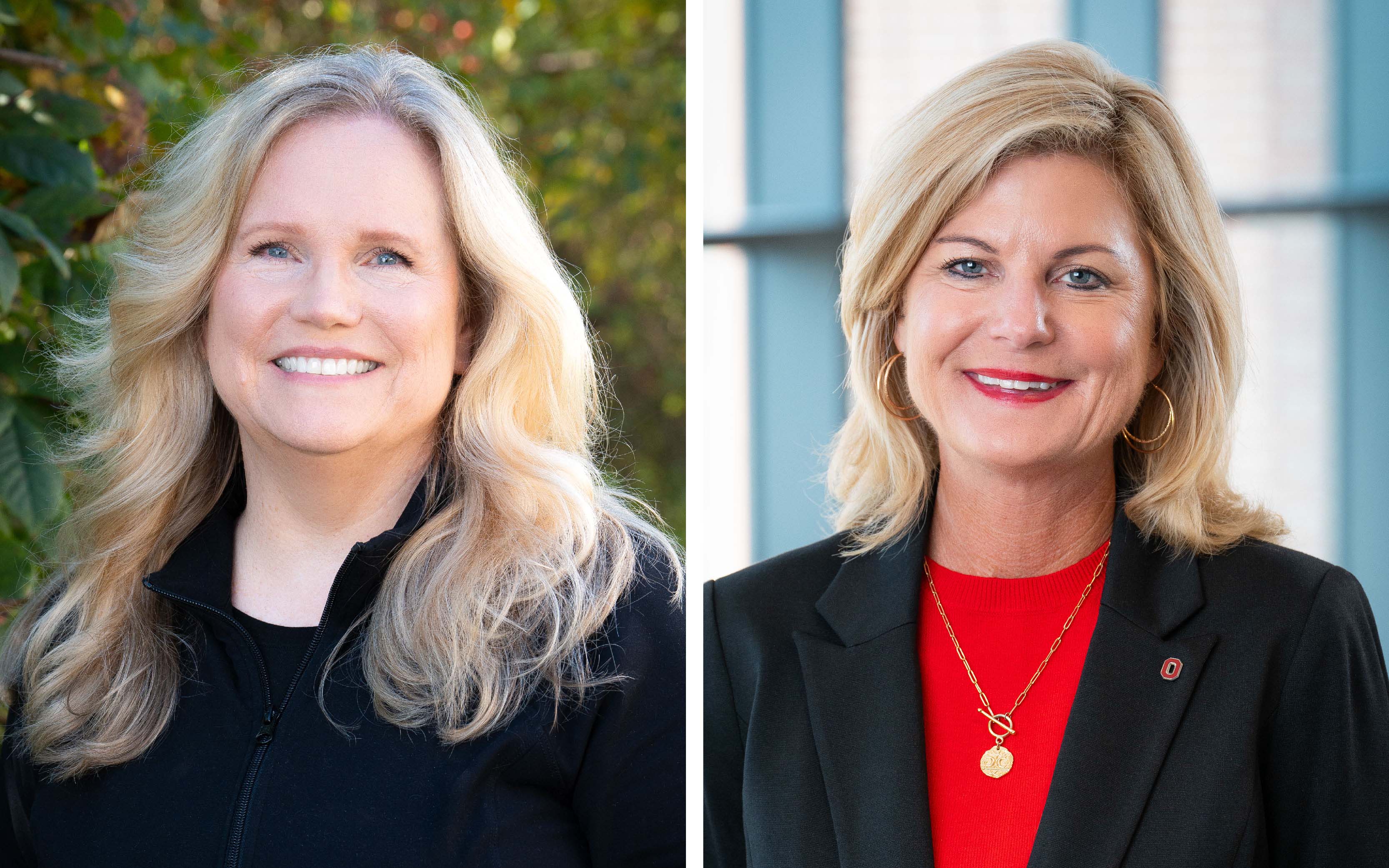
The need for a program for nurse educators motivated Bernadette Melnyk, PhD, APRN-CNP, FAANP, FNAP, FAAN, chief wellness officer and vice president for health promotion at Ohio State and Helene Fuld Health Trust Professor of EBP in the College of Nursing, to bring together nurse educators in the college to create the first Doctor of Nursing Education (DNE) program in the country. King, director of the DNE program, and O’Brien, assistant director, led curriculum development of this program out of their excitement to help educate individuals who are ready to teach our future nurses.
The program addresses the needs of nurse educators in the professional workforce, too. Leaders from the Association for Nursing Professional Development (ANPD), Mary Harper, PhD, RN, NPDA-BC, FAAN, and ANPD President Patsy Maloney, EdD, RN-BC, NEA-BC, CEN, contacted Melnyk asking for a seat at the table to help develop the degree because, they said, “there is not a terminal degree in our nation that speaks to the need for nursing education in the healthcare setting.” King partnered with these national experts for two years to develop content in nursing professional development across the program and in the track-specific courses.
While some DNP programs have nursing education components, “In a DNP program, mostly 12-16 credits, are not going to meet what we can deliver in the depth and breadth of 50 (credit) hours, not even close,” King pointed out. Her students, she said, are excited to be earning the first Doctorates of Nursing Education. “They are helping us envision a future with this program.”
Students interested in pursuing a DNE at Ohio State apply and interview online from across the country. Classes are held online, with students spread across three time zones engaging both in real-time, interactive online classes and asynchronous classes. To fit with working students’ busy schedules, synchronous classes are all held on the same day for each cohort.
“It’s very innovative, creative and it’s going to change the landscape of nursing education.”
– Tara O’Brien
“Most of our classes have a majority of synchronous sessions, but up to 49% is asynchronous … that’s the same way our DNP program is run,” O’Brien said. “When they need the in-the-moment interaction and feedback from faculty, they have those synchronous sessions.” Asynchronous sessions, she added, allow students time to get caught up on readings, assignments and projects that are due outside of synchronous class time.
These students come from many different nursing careers in academia and practice. “Some are working with brand new nurses, some are working with the cancer population, some are working with a cardiac population,” O’Brien said. They may choose from two tracks: the Academic Nurse Educator (ANE) track, focusing on higher education settings and the Nursing Professional Development (NPD) track, addressing educational needs within healthcare systems.
Students can complete the program in five semesters (two years) of full-time study or eight semesters (three years) of part-time study, including summer semester coursework.
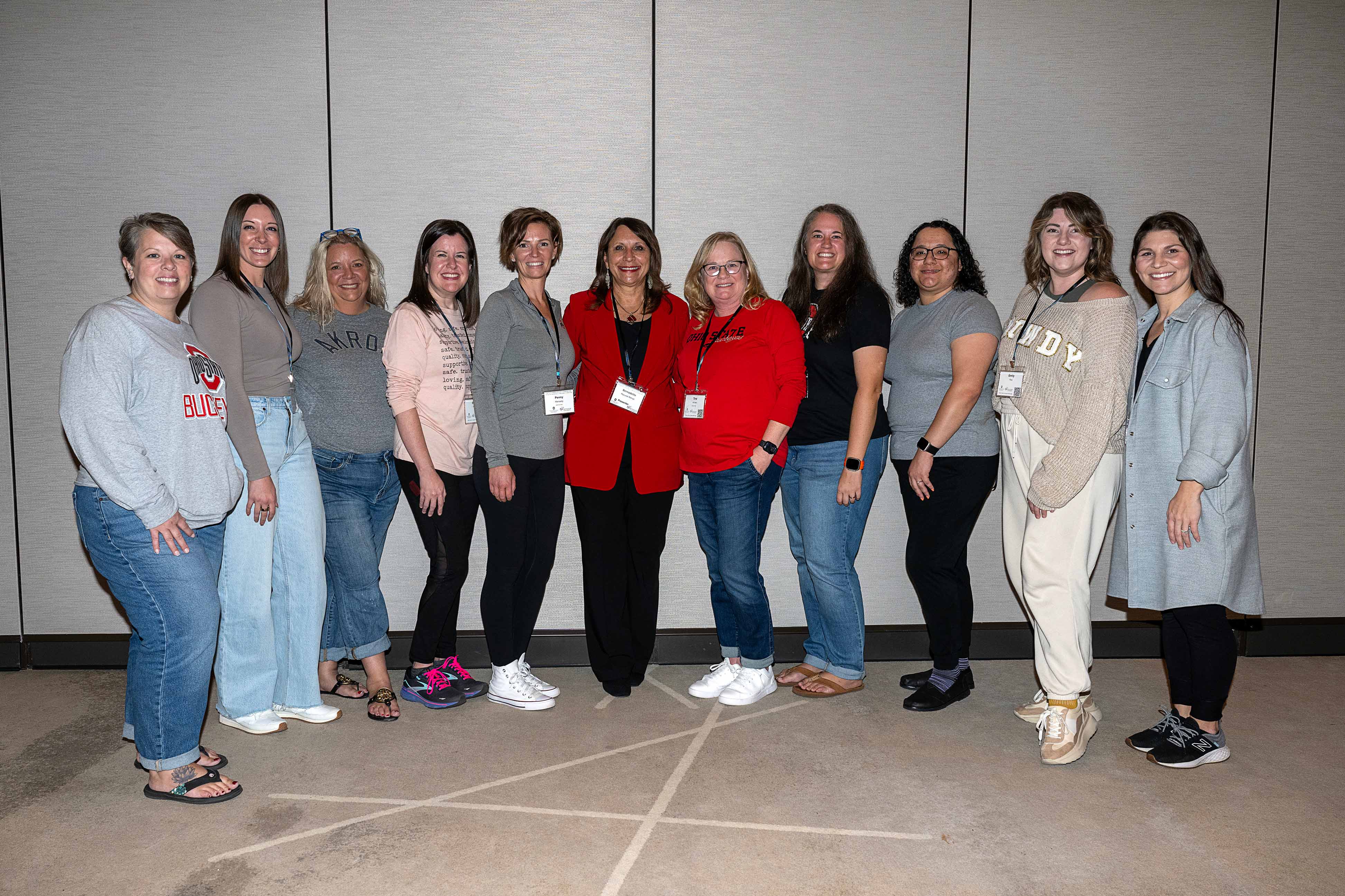
The DNE program currently holds pre-accreditation status from the National League for Nursing Commission for Nursing Education Accreditation. King and O’Brien are working to achieve full accreditation status within the next year.
King and O’Brien speak proudly of their students, describing them as “early adopters” who are passionate about reshaping nursing education. With the first cohort set to graduate in May 2025, anticipation is high regarding the program’s impact on the field of nursing education.
“They are going to make such a huge, positive change in our profession by implementing evidence-based solutions to intractable problems in nursing education,” King said.
DNE students show the same excitement and enthusiasm for the program. “The faculty are exceptional, supporting students holistically and truly taking Ohio State’s academic excellence and wellness standards to heart. I’m also so thankful and impressed by my fellow student peers, with diverse backgrounds and immeasurable potential,” said DNE student Rachel Sinz, MSN, RN, CNOR(E), an assistant professor of nursing at Catawba College in Salisbury, NC. “This program is right on point with the rigor and the challenges that push us to be the best version of ourselves.”
#LegacyDNE: Two DNE students tell us about why they chose this program and what it’s like.
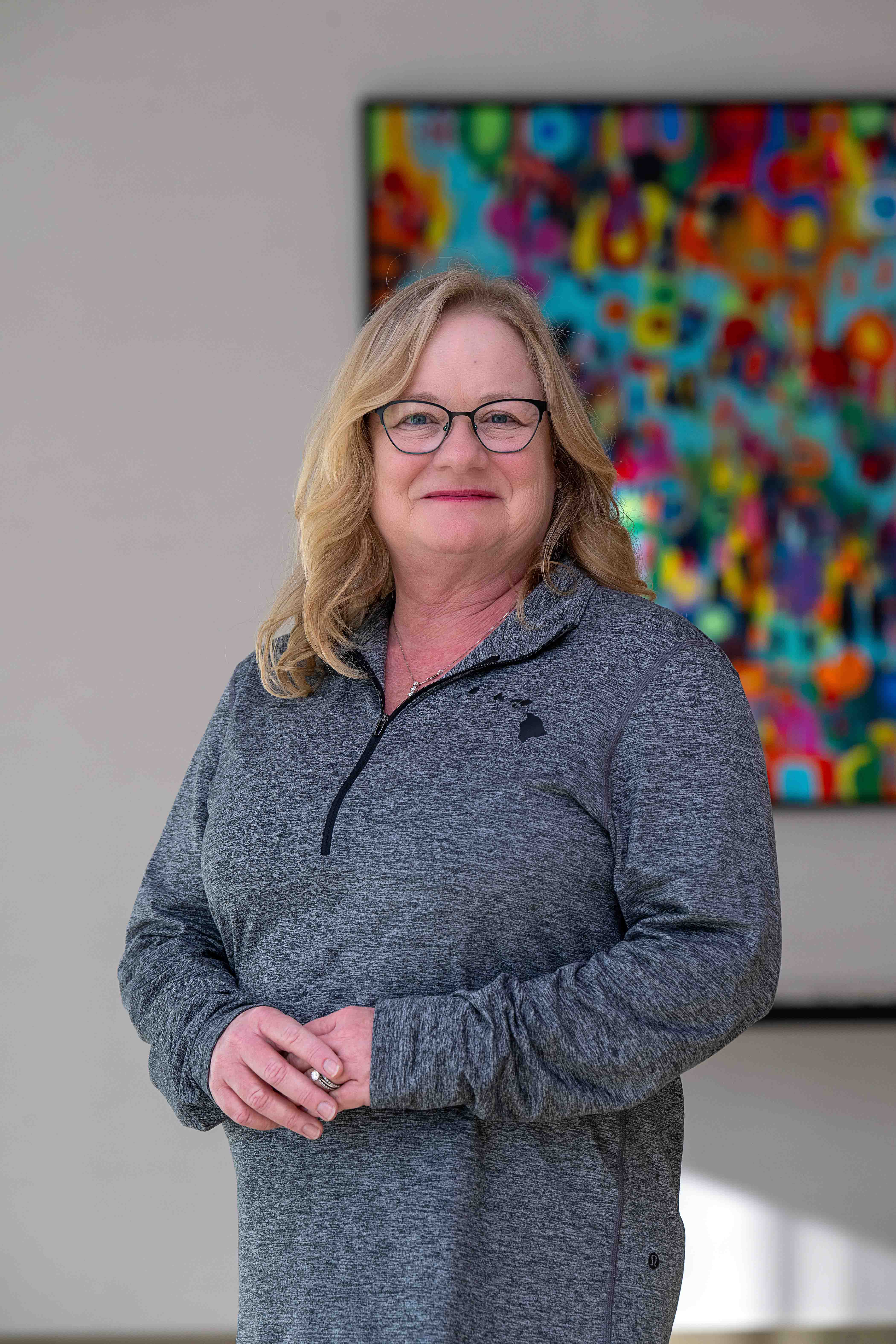
Tina McNeal, RN, MSN, CNE, is a part-time student in the Nursing Professional Development (NPD) track. Before being a nurse educator, McNeal had a varied background in medical-surgical, transplant and school nursing. Ready to expand her knowledge, McNeal joined the DNE program in cohort 2 and plans to graduate in May 2026. She runs a transition to practice program in Honolulu, Hawaii.
Why did you choose the DNE program?
McNeal attended the Transforming Healthcare Through Evidence-based Practice Summit presented by the Helene Fuld Health Trust National Institute for Evidence-based Practice in Nursing and Healthcare at Ohio State in March 2022. During one of the breaks, she chatted with a group of Ohio State nursing professors who asked her why she wasn’t pursuing a doctoral degree. “Because I don’t want a DNP and I don’t want a PhD,” McNeal replied. Then they told her about the new DNE program being developed at Ohio State. “That’s everything I want to focus on in my career!” she told them.
Why did you choose the NPD track?
“It’s what I do. I love the new grads.” McNeal has been a nurse educator since 2013 and currently runs a transition to practice program supporting new licensed nurses. “I want them at my age to still say, ‘This is what I love.’”
How has your experience been with the program?
“Amazing. Dr. O’Brien and Dr. King, there’s nobody better than them ... They care about us as people ... There’s not an instructor I’ve had who is not amazing. Whatever their area of expertise is, they are able to teach both tracks and make it mean something to both tracks.”
How is your relationship with your online classmates?
“Almost every class has some type of group project, whether it be outside of class or an in-class activity, and it’s really allowed us to become a very tight-knit, cohesive group.” In October, McNeal and several of her DNE classmates attended the Summit on Promoting Well-being and Resilience in Healthcare Professionals in Columbus, Ohio to support the three members in her cohort who presented. She has loved getting to know her classmates while expanding her knowledge through this program. “We actually have Zoom meetings once a month where we can just chat after classes on Wednesdays.”
You’re trailblazing, you’re pioneering. Is that exciting?
“We say, ‘#LegacyDNE!’ This is an innovative, disruptive degree and disruptive in all the great ways. It gives us a new path for those of us who really want our concentration to be nursing education. Somebody in this group could change the face of nursing education.”
What are your dreams after completing the DNE program?
“I would like to do this job that I have on a bigger level ... I love my job at my site, but that means my sphere of influence is my site. I would like to make changes from the top. I’d like to be able to influence what the standardized curriculum is across the 13 sites.”
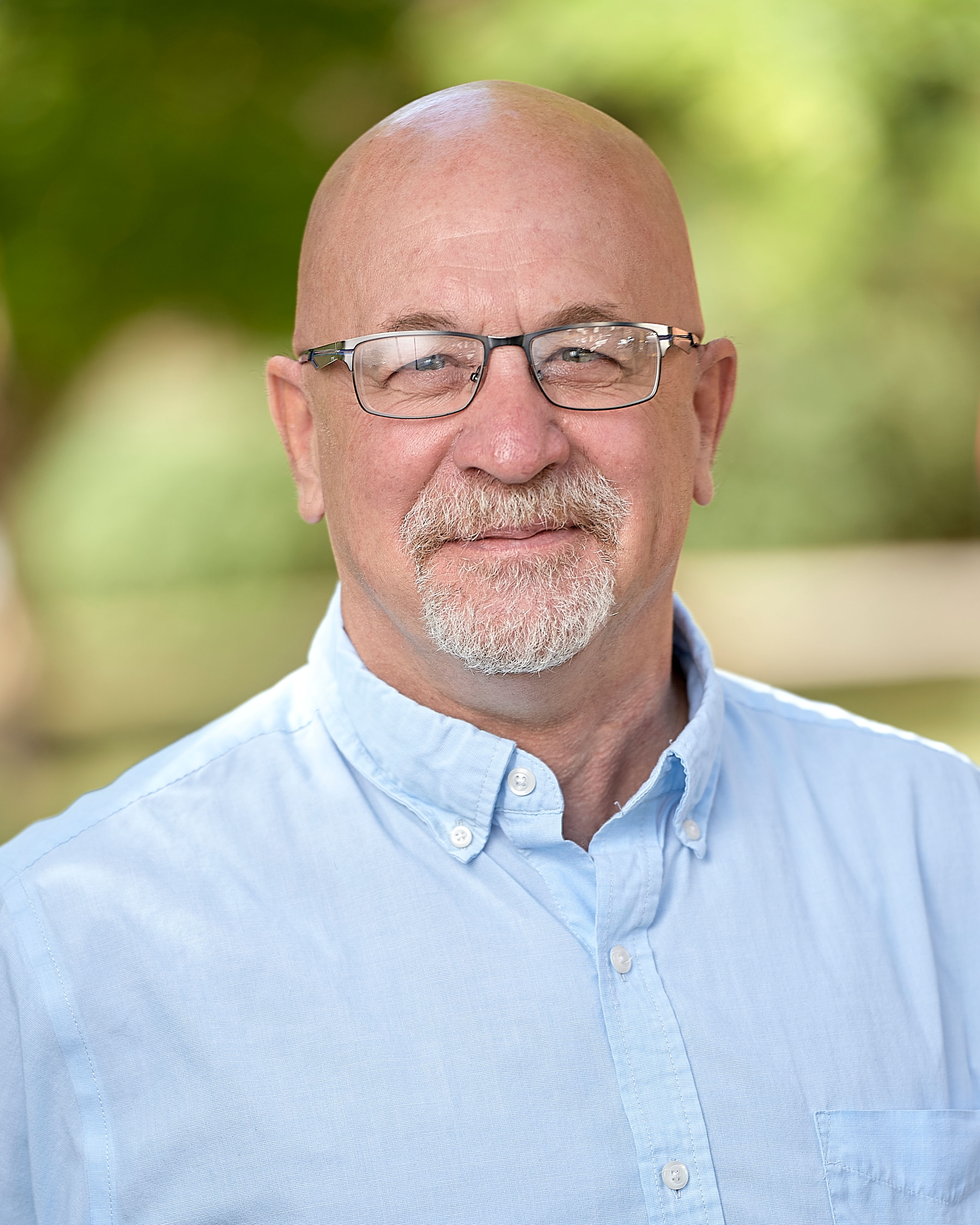
Bradley Bell, RN, MSN, is a part-time student in the Academic Nurse Educator (ANE) track. Before becoming a nurse educator, Bell was a firefighter and a paramedic. “I’ve been involved in education for many years through my fire career and I’ve always enjoyed doing the education side of it,” he said, rattling off degrees he has earned, including degrees in diesel mechanics, fire science, nursing and a master’s in nursing education. Bell has strong goals to make changes in the field of nursing and has no plans to retire anytime in the near future. Bell is in cohort 1 and plans to graduate in May while he continues teaching at Montana State University.
Why did you choose the DNE program and ANE track?
“It was a bucket list thing for me. I wanted to follow my father. My father was a doctor, a veterinarian.” While filling out an application for an EdD program, Bell wondered if there was a doctorate anywhere that focused on Nursing and searched “DNE.” Up popped the new program at Ohio State. “I looked up DNE and realized this is what I want. I’m doing nursing education, I’m working at a college of nursing, I want this specifically for nursing education.”
How has your experience been with the program?
“These are the hardest courses I’ve ever taken but it is also the most fun and most rewarding. The people that I’m working with – the whole cohort, the instructors, everybody – are unbelievably fantastic.
How is your relationship with your online classmates?
“There are four of us in a group doing one of the assignments and we get together at least once a week, sometimes twice a week, working on it.” Zoom meetings turn into chat sessions after the work is done. “Everybody in this cohort works so well together. I think it’s an amazing thing that they did to start this.”
Do you have a doctoral project?
Mine is going to be focusing on nursing student retention and how to keep our students in the curriculum. It’s not a huge problem right now, but they want to catch it before it starts to be a big problem.”
You’re trailblazing, you’re pioneering. Is that exciting?
“It’s a new process,” Bell agreed. “Dr. King and Dr. O’Brien have really been fantastic about leading us through this and explaining how we do stuff ... The Ohio State University doesn’t do anything halfway. I have complete confidence in everything happening.”
What are your dreams after completing the DNE program?
“I want to make a difference for the students. I want to see them succeed. The nursing profession is not for the faint hearted.” Bell wants to keep pushing for and getting more support implemented in the curriculum at Montana State that will help students succeed. “I don’t want to be a change agent,” he said. “I want to be the change agent.”
In this Issue
- DNE: The Change Agents
- Clinician Well-Being Summit
- From Lab to Life
- Expanding Community Care
- Reaching out to Taiwan
- Buckeye Inspiration: David Hiatt
- Brain Health Fair
- Grants Roundup
- Student Life: Isabelle Meehan
- Connecting Young People in Crisis to Health and Hope
- Alumni in Action: Jeri Milstead
- Putting Our Heads Together for Brain Health

